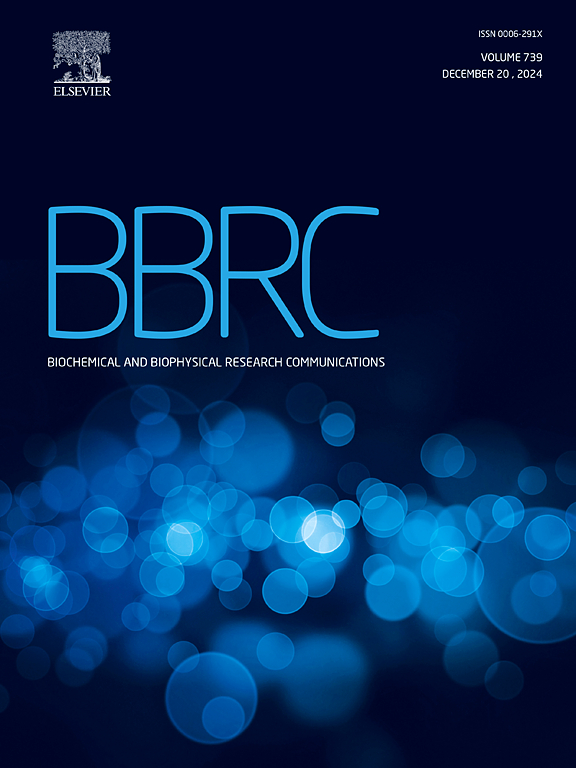Mechanistic insights into molecular targeted therapy and immunotherapy for lung cancer
IF 2.5
3区 生物学
Q3 BIOCHEMISTRY & MOLECULAR BIOLOGY
Biochemical and biophysical research communications
Pub Date : 2025-06-12
DOI:10.1016/j.bbrc.2025.152204
引用次数: 0
Abstract
Lung cancer is a serious public health concern and a leading cause of cancer related deaths worldwide. The major drawback of conventional therapies such as chemotherapy, radiotherapy, and surgery is their limited efficacy and lack of tumor specificity. Of these treatment options, targeted therapy and immunotherapy are of best interest due to their potential to selectively target cancer cells and enhance immune responses. Targeted therapy can bind to molecular targets and inhibit pathways involved in cell growth, proliferation, and survival. In the case of lung cancer, targeting expressions of EGFR, KRAS, and BRAF are important as their overexpression makes up a significant portion of cancer cases. Targets in the MAPK, PI3K, and MYC pathway are also inhibited as each of these pathways promote cell proliferation and growth. Immunotherapy directly kills off cancerous cells by amplifying the behavior of immune cells. Immunotherapeutic targets include NK-cells, T-cells, and immune checkpoints. NK cells and T cells are involved in the elimination of cancer cells, while immune checkpoints regulate the immune system but may be exploited by cancerous cells. The advent of molecular targeted therapy and immunotherapy has significantly transformed lung cancer treatment, offering precision and efficacy in combating tumor resistance. Their integration in combination strategies holds great promise for improved clinical outcomes and represents a pivotal direction for future therapeutic advancements.

肺癌分子靶向治疗和免疫治疗的机制研究
肺癌是一个严重的公共卫生问题,也是全球癌症相关死亡的主要原因。传统疗法如化疗、放疗和手术的主要缺点是它们的疗效有限和缺乏肿瘤特异性。在这些治疗方案中,靶向治疗和免疫治疗最受关注,因为它们有可能选择性地靶向癌细胞并增强免疫反应。靶向治疗可以结合分子靶标,抑制参与细胞生长、增殖和存活的途径。在肺癌中,靶向EGFR、KRAS和BRAF的表达很重要,因为它们的过表达占癌症病例的很大一部分。MAPK、PI3K和MYC通路中的靶点也受到抑制,因为这些通路促进细胞增殖和生长。免疫疗法通过增强免疫细胞的行为直接杀死癌细胞。免疫治疗靶点包括nk细胞、t细胞和免疫检查点。NK细胞和T细胞参与消除癌细胞,而免疫检查点调节免疫系统,但可能被癌细胞利用。分子靶向治疗和免疫治疗的出现极大地改变了肺癌的治疗,在对抗肿瘤耐药方面提供了精确和有效的方法。它们在联合策略中的整合为改善临床结果提供了巨大的希望,并代表了未来治疗进步的关键方向。
本文章由计算机程序翻译,如有差异,请以英文原文为准。
求助全文
约1分钟内获得全文
求助全文
来源期刊
CiteScore
6.10
自引率
0.00%
发文量
1400
审稿时长
14 days
期刊介绍:
Biochemical and Biophysical Research Communications is the premier international journal devoted to the very rapid dissemination of timely and significant experimental results in diverse fields of biological research. The development of the "Breakthroughs and Views" section brings the minireview format to the journal, and issues often contain collections of special interest manuscripts. BBRC is published weekly (52 issues/year).Research Areas now include: Biochemistry; biophysics; cell biology; developmental biology; immunology
; molecular biology; neurobiology; plant biology and proteomics

 求助内容:
求助内容: 应助结果提醒方式:
应助结果提醒方式:


